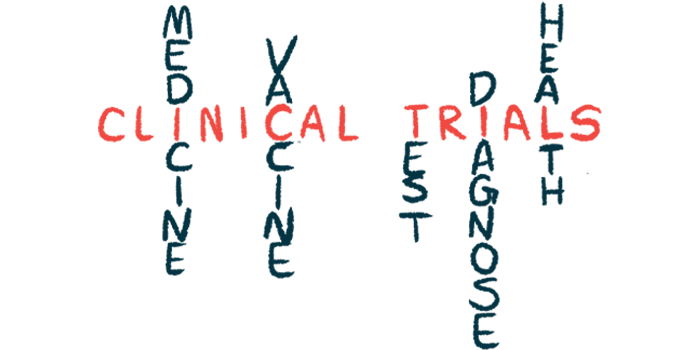Trial Failure of Antibody Targeting Alpha-synuclein Detailed
Prasinezumab failure in Parkinson's phase 2 trial detailed
Written by |

Treatment with prasinezumab, a monoclonal antibody designed to break up toxic alpha-synuclein aggregates, failed to slow the progression of Parkinson’s disease in a Phase 2 clinical trial.
“In this placebo-controlled trial, treatment with prasinezumab, a humanized monoclonal antibody targeting aggregated [alpha]-synuclein, had no meaningful effect on global clinical or imaging measures of Parkinson’s disease progression,” the researchers wrote.
Top-line trial data were announced in 2020. Full results are now in the study “Trial of Prasinezumab in Early-Stage Parkinson’s Disease,” published in The New England Journal of Medicine. The work was funded by Roche and Prothena, the investigational therapy’s developers.
Parkinson’s is caused by the death and dysfunction of brain cells that make the signaling molecule dopamine. At the cellular level, the disease is characterized by the formation of abnormal aggregates, or clumps, of the alpha-synuclein protein. Breaking up these clumps has long been pursued as a way of treating Parkinson’s.
Prasinezumab is an antibody-based therapy designed to break up alpha-synuclein aggregates. Data from a prior Phase 1 study (NCT02157714) showed that the experimental treatment could lower alpha-synuclein blood levels in people with Parkinson’s.
Significant changes not seen with prasinezumab
The two-part Phase 2 PASADENA (NCT03100149) study enrolled 316 people with early Parkinson’s disease. In its first part, participants were randomly assigned to one of two doses of prasinezumab (1,500 or 4,500 mg) or to a placebo, both administered via infusion into the bloodstream every four weeks for one year. Patients in the high-dose group weighing less than 65 kg (143 pounds) were given 3,500 mg.
After the first year, those initially given placebo were randomly assigned to one of the investigative treatment’s two doses, while patients on prasinezumab continued the treatment for another year.
PASADENA’s main goal was the effect of treatment on Parkinson’s motor and nonmotor symptoms, assessed using total scores on the Movement Disorder Society-Sponsored Revision of the Unified Parkinson’s Disease Rating Scale (MDS-UPDRS). These scores can range from zero to 236, with higher MDS-UPDRS scores indicating more severe symptoms.
At the study’s start, the average MDS-UPDRS score across all patients was slightly more than 30 points. After one year, the average score increased by 9.4 across the placebo group, and by 7.4 and 8.8, respectively, for the low- and high-dose prasinezumab groups.
Statistical analyses showed no significant differences in MDS-UPDRS scores between the three groups. Analyses of individual MDS-UPDRS subscores also did not show significant differences.
“Prasinezumab therapy showed no significant difference from placebo in 1-year progression of the sum of scores on parts I, II, and III of the MDS-UPDRS,” the researchers wrote.
Further analyses compared two-year outcomes for patients who had switched from placebo to prasinezumab after one year with those who had been on the therapy for both years. Again, no significant differences were evident between these groups.
“The MDS-UPDRS total scores or subscores did not improve in participants in the placebo group who were reassigned to prasinezumab in part 2 (delayed-start cohort) as compared with the early-start cohort, which suggests that an effect on symptoms with prasinezumab therapy for an additional 48 weeks is unlikely,” the scientists wrote.
Imaging data tracking dopamine activity in the brain also showed no significant differences with prasinezumab treatment. Prasinezumab was generally safe and well-tolerated; the most common side effects were reactions to infusions.
In an accompanying editorial, Alan Whone, MD, PhD, a lecturer in movement disorders neurology at the University of Bristol, noted that a similar clinical trial testing cinpanemab, another experimental antibody targeting alpha-synuclein, also reported negative results, leading its developer to stop further efforts to advance cinpanemab.
“Although these results are more than disappointing and certainly have no implications for current practice, both teams should be congratulated,” Whone wrote, noting that completing these trials given disruptions related to the COVID-19 pandemic is “no small achievement.”
Prasinezumab testing continues
Roche and Prothena previously announced plans to continue clinical testing of prasinezumab, and a Phase 2b efficacy and safety trial called PADOVA (NCT04777331) is underway in up to 575 adults with early-stage disease and on stable Parkinson’s treatments, who will be assigned to prasinezumab treatment or a placebo. This study is recruiting eligible patients in the U.S., Europe and Canada; contact and site information is available.
In his editorial, Whone noted it’s “likely that the evidence in aggregate marks the end of the road for monoclonal antibodies in the treatment of early Parkinson’s disease.” Nonetheless, he stressed that these results “should not dismiss the possibilities” that antibodies against alpha-synuclein may be useful for certain genetic forms of Parkinson’s or if given in the prodromal phase (before symptoms develop).
More broadly, Whone said these results pose questions about potentially misleading preclinical results and clinical trial design that the field will need to address moving forward.
“Despite the pitiful lack of realization in disease-modifying therapy trials in Parkinson’s disease, the field should not give up. … After all, investigators and sponsors heading for the hills is unlikely to best serve people with Parkinson’s disease.”
Whone concluded the editorial with a quote attributed to Winston Churchill: “Success consists of going from failure to failure without loss of enthusiasm.”



